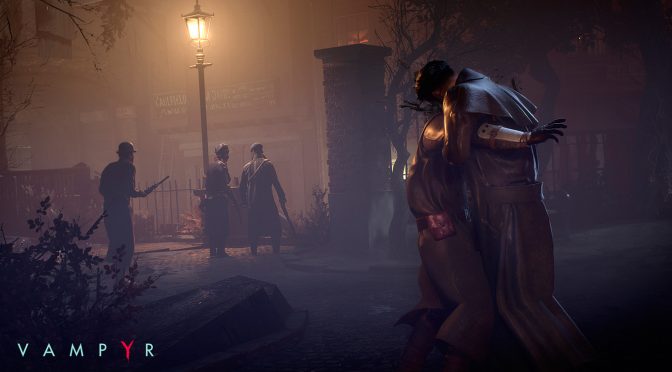Focus Home Interactive has released the third episode of VAMPYR’s webseries in which we meet the citizens of Vampyr’s 1918 London, and learn how DONTNOD will make players feel the death of each one you decide to feed on. This video introduces more exclusive gameplay footage, while focusing on the citizens of London and how each individual has been hand-crafted to feel as human as possible.
In Episode III: Human After All, DONTNOD reveals how integral each districts citizens are, both in terms of gameplay and narrative. Players will need to gain XP for Jonathan Reid to evolve new powers and grow stronger, but the most lucrative way to earn this is not through quests or defeating enemies in battle. Instead, the most effective way to get stronger is by killing and feeding on the various citizens living within the game’s four districts. Players are able to increase the XP from each citizen, by curing their illnesses and gaining more insight into their lives and emotions – but the price can be immense.
As explained by Stéphane Beauverger, Vampyr’s narrative director, players will hear the dying thoughts of every citizen they choose to sacrifice. This gives a bittersweet poignancy to every death, as DONTNOD wants players to not consider these citizens as nameless blood bags. In addition, each dead citizen will erode the status of the district they belonged to, with too many resulting in the population evacuating districts and causing them to be overrun by Skals and worse.
Vampyr is currently planned for a Spring 2018 release.
Enjoy!

John is the founder and Editor in Chief at DSOGaming. He is a PC gaming fan and highly supports the modding and indie communities. Before creating DSOGaming, John worked on numerous gaming websites. While he is a die-hard PC gamer, his gaming roots can be found on consoles. John loved – and still does – the 16-bit consoles, and considers SNES to be one of the best consoles. Still, the PC platform won him over consoles. That was mainly due to 3DFX and its iconic dedicated 3D accelerator graphics card, Voodoo 2. John has also written a higher degree thesis on the “The Evolution of PC graphics cards.”
Contact: Email

